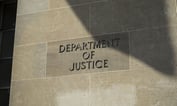 Christopher Porrino of Lowenstein Sandler, left, and Christopher Adams of Greenbaum Rowe, right/courtesy photos
Christopher Porrino of Lowenstein Sandler, left, and Christopher Adams of Greenbaum Rowe, right/courtesy photos
Investigations of possible fraud in the federal Paycheck Protection Program are prompting some loan recipients to seek legal counsel, some lawyers say.
Some of those cases involve clear-cut allegations of fraud, along the lines of the New Jersey lawyer charged earlier this month with fraudulently obtaining $9 million in PPP loans. But many investigations appear to focus on the more nebulous issue of whether the businesses really needed the money, lawyers said.
Defense lawyers say they are getting calls from PPP loan recipients who have been contacted by investigators, or fear they may face charges in connection with the aid program.
Christopher Porrino, chairman of the litigation department at Lowenstein Sandler who had stints as the state attorney general and governor’s counsel under Chris Christie, likened the PPP fraud situation to the state’s distribution of aid after Hurricane Sandy. There, a state aid package was followed by numerous fraud charges against recipients.
“What people don’t understand is that there is tremendous political pressure to get the money out the door,” said Porrino. “The people who are responsible for getting the money out the door are in a different section of government than the people in charge of auditing, and have different motivations. The investigators are not part of the political machine, and as the money goes out, they are sharpening the knives and ready to investigate.”
In addition, if Joe Biden is elected as president, PPP fraud investigators can be expected to become even more aggressive, said Porrino.
“The new administration will feel much less attached to the grants, and the process around the grants. Unfortunately, the grantees are the ones that will lose,” Porrino said.
Knowing whether a PPP recipient will face trouble for taking aide it didn’t need is difficult, Porrino said. Applicants were required to certify that they needed the money to make payroll, “a pretty mushy standard,” he said.
He cites the hypothetical example of a company that leases a Ferrari for its CEO, and renews the lease after receiving PPP funds. In that case, “I don’t know if the government is going to take the position that the company really needs the money,” Porrino said.
Other companies are fearing investigation because they predicted they would need the money for payroll when applying for funds, Porrino said. In the early days of the shutdown, many companies braced for dire economic predictions, but the most severe scenarios did not always materialize.
“You just hope that people were careful and papered their files and can demonstrate that they applied for the money in good faith, as opposed to an auditor or investigator revealing to the contrary, that the application was not made in good faith. I think this look back is going to create an enormous amount of activity for applicants and for defense lawyers,” Porrino said.
The Justice Department says it anticipates a high volume of PPP prosecutions are coming.









 September 14, 2020 at 11:42 AM
September 14, 2020 at 11:42 AM











